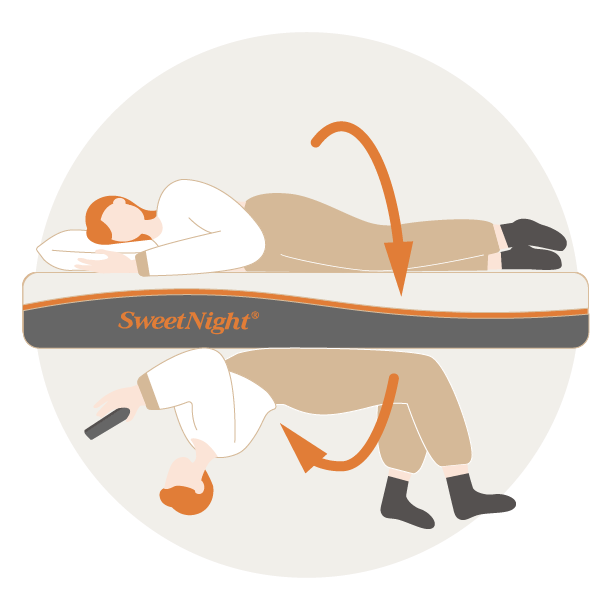Sleep&Health
Does Milk Help You Sleep? Discover the Truth Now
As I curl up with a book and my favorite blanket, the age-old question, "Does milk help you sleep?" crosses my mind. Like many, I've been told that a warm glass of bedtime milk is the secret to a night of restful sleep. Tonight, I ponder whether this cozy myth actually holds true, or if it's time to uncover the facts. Is there science behind the comforting glass of milk for sleep, or is it simply a placebo effect that has comforted generations? Join me as we delve into this sleep-time tale and put to bed the lingering questions surrounding this creamy elixir.
Key Takeaways
● Examining the traditional belief in warm milk's power to promote restful sleep.
● Exploring scientific findings about bedtime milk and sleep quality.
● Investigating milk's components that might aid sleep, such as tryptophan.
● Addressing the cozy myth versus the actual impact of milk on sleep.
● Discovering the potential psychological comforts associated with milk as a sleep aid.
● Considering both the cultural relevance and the nutritional evidence of milk for sleep.

CONTENTS
- 1. The Timeless Tradition of Milk Before Bed
- 2. How Milk Can Promote Better Sleep
- 3. The Nutritional Profile of Milk and Its Sleep-Promoting Properties
- 4. Does Warm Milk Really Make You Sleepy?
- 5. Milk and Sleep Quality: Separating Myth from Science
- 6. The Downside of Drinking Milk Before Bed
- 7. Alternatives: Other Bedtime Beverages for Quality Sleep
- 8. Establishing a Soothing Bedtime Routine: Beyond Milk
- 9. Conclusion
- 10. FAQ
The Timeless Tradition of Milk Before Bed
Much like a cherished recipe passed down from generation to generation, the ritual of drinking milk before bedtime has long been a part of my personal daily routine. There's something inherently comforting about this age-old practice that goes beyond nutrition and taste—it’s a thread woven through the fabric of family lore that ties us to our past and eases us into the peaceful embrace of sleep. My earliest memories recall a warm glass of milk, a soothing toy by my side, and a blanket of sleepiness gently settling over me.
The Nighttime Rituals Across Generations
Thinking about how milk and sleep are intertwined takes me back to the soft murmur of my mother’s voice, recounting stories of how her own mother would encourage a nightly milk ritual. I've come to understand that these moments are more than simple habits; they’re sensory experiences that signal to our brains that the day is ending. Whether it's the silky texture of the milk, the rhythmic motion of stirring, or the familiar clink of a spoon against the glass—each detail is part of a bedtime routine with milk that's been cherished for as long as I can remember.
Milk's Cultural and Comfort Significance for Sleep
In my journey collecting anecdotes for this article, I've discovered that milk's role in the pursuit of sleep is as much about cultural significance as it is about biology. For many, it’s akin to a soothing toy for the soul—a simple pleasure that unfailingly brings a sense of serenity at the day's end. As I lay the foundational tiles of my own family's future rituals, it's comforting to know that a glass of milk before slumber is a shared heritage—one that offers a warm, creamy reminder of cozy evenings and dreams soon to be dream.
How Milk Can Promote Better Sleep
As someone always on the lookout for natural methods to enhance my sleep quality, I've often heard about the benefits of drinking milk before bed. It's intriguing how this simple drink is not only a staple in nutrition but could also be a key to unlocking better rest at night. So, let's dive into how milk can promote better sleep and whether it stands true as an effective milk as a sleep aid.
Milk contains a handful of components that might very well be the unsung heroes of our bedtime routine. For starters, it has tryptophan, an essential amino acid that our body uses as a building block for serotonin, a mood regulator. Serotonin then converts to melatonin, our body's sleep hormone, which helps to improve sleep quality. But that's not all - milk is also a source of magnesium, a mineral that supports muscle relaxation and the nervous system.
Did you know? The calming effect of milk has a basis in science, thanks to certain bioactive peptides it contains, such as CTH (casein tryptic hydrolysate) and α-lactalbumin, which can potentially improve stress responses and sleep quality.
Some studies point out that the interaction of these components within milk might contribute to better sleep patterns. However, as many of us are aware, the extent of how milk can promote better sleep has been debated. The direct influence on slumber might not be as potent as other interventions, but it can't be denied that a glass of milk might just set the stage for a more restful night.
● Tryptophan: Precursor to serotonin and melatonin, essential for regulating sleep cycles.
● Magnesium: Promotes muscle relaxation and proper nerve function.
● CTH (Casein Tryptic Hydrolysate): Could potentially reduce stress, thereby supporting smoother transition into sleep.
● α-Lactalbumin: High in tryptophan, possibly improving the synthesis of sleep-related neurotransmitters.
All in all, while the discussion continues on the full extent of the benefits of drinking milk before bed, I believe there's something comforting and ritualistic about it that can align the body and mind towards a state of readiness for sleep. Whether it's the placebo effect or biochemistry at play, it's a nightly tradition I'm not giving up on anytime soon.

The Nutritional Profile of Milk and Its Sleep-Promoting Properties
For centuries, a glass of milk at bedtime has been cherished for its purported powers to usher in a good night's rest. Scientifically, this can be linked to several components found in milk, which are believed to interact with the body's sleep regulation mechanisms. Let's delve into the nutritional elements that might help us understand milk's sleep-promoting effect, contributing to it being recognized by some as a natural sleep factor.
The Role of Tryptophan in Milk
When I consider the connection between milk and melatonin production, I can't help but think of tryptophan. This essential amino acid plays a pivotal role as a precursor to serotonin, a neurotransmitter that deeply influences our mood and sleep cycles. It's fascinating that serotonin, in turn, is converted into melatonin, and I find it amazing how milk naturally contains the foundational elements that culminate in our sleep-wake regulation.
Calcium and Magnesium: Vital for Sleep Regulation
Magnesium is a mineral I wouldn't overlook when sipping my evening glass of milk. Known for supporting many biological functions, its presence in milk aids as a co-factor to facilitate the conversion of tryptophan to serotonin and melatonin. And let's not forget about calcium's role in muscle relaxation and sleep regulation. To me, they're like a duo working behind the scenes to set the stage for a peaceful slumber.
Casein Tryptic Hydrolysate (CTH) and Sleep Improvement
Research hinting at the benefits of casein tryptic hydrolysate, or CTH, adds yet another intriguing layer to milk's sleep-promoting reputation. Extracted during the process of milk protein digestion, CTH may have properties that promote relaxation and thereby enhance sleep quality. Plus, the presence of α-lactalbumin in milk, rich in tryptophan, further backs the idea of milk being a potential ally in the quest for better rest.
| Sleep-Promoting Ingredient | Function | Presence in Milk (approx.) |
|---|---|---|
| Tryptophan | Serotonin Synthesis | 0.1 g per cup |
| Calcium | Muscle Relaxation | 300 mg per cup |
| Magnesium | Serotonin to Melatonin Conversion | 24–26 mg per cup |
| CTH | Supports Sleep Quality Improvement | Varies with processing |
Does Warm Milk Really Make You Sleepy?
When we consider the age-old practice of drinking warm milk before bed, we're often left wondering: does warm milk really make you sleepy? While the lore of warm milk for sleep is deeply woven into our cultural fabric, the scientific community holds mixed views on this matter. Speaking from personal experience, there's something undoubtedly comforting about drinking milk at night for better sleep. It's a ritual that reminds many of us of childhood and a feeling of safety, which in itself is a form of relaxation that might usher in sleep.
Indeed, milk does contain components like tryptophan and calcium, which have roles in the production of melatonin, a sleep-regulating hormone. Tryptophan, for example, is essential in creating serotonin, which is then converted into melatonin. The question that arises, however, is: does milk contain melatonin directly? The answer is a bit complex. While milk does have trace amounts of melatonin, it's the indirect role of tryptophan and other elements in milk that may support the sleep process.
Renowned sleep specialist Michael Breus suggests that warm milk's ability to improve sleep may not solely hinge on its biochemical makeup. Instead, he believes that the ritual of sipping warm milk might resonate on a deeper, more psychological level that triggers memories of comfort and hence leads to sleepiness. While we can't ignore the potential effects of warm milk's warmth and texture in the serene hours of the night, it's intriguing to consider the powerful role our minds play in the process.
While I have not conducted an exhaustive scientific study myself, my curiosity about the topic continues to grow. Whether it's the psychological comfort or the subtleties of milk's composition at work, this nightly habit persists for many as a symbol of tranquility. Next time you find yourself reaching for a warm cup of milk before bed, consider both the physical warmth it provides and the psychological peace it may evoke. Perhaps it's this blend of tradition and science that makes the practice endure through the ages.
Milk and Sleep Quality: Separating Myth from Science
As we delve into the fascinating interplay between our dairy intake and the quest for better sleep, it's crucial to understand the intricate balance between folklore and the scientific underpinnings. Many of us grew up with the belief that a glass of milk before bed is the passport to blissful slumber. But is this a charming bedtime story, or does it hold a kernel of truth?
The Reality of Tryptophan Levels in Milk
Let's analyze the facts: milk does indeed contain tryptophan, an amino acid that is a precursor to the sleep-regulating hormone melatonin. However, the concentration of tryptophan in milk is relatively minor, with only about 0.042g per 100 grams of milk. You might be thinking, does this modest amount significantly influence my sleep quality? To shed light on this, let's take a look at a table comparing tryptophan levels in various foods:
| Food | Tryptophan (g) per 100g | Comments |
|---|---|---|
| Milk | 0.042 | Low in tryptophan |
| Chicken | 0.24 | Higher in tryptophan |
| Pumpkin Seeds | 0.576 | Rich source of tryptophan |
| Tofu | 0.217 | Good plant-based source |
This table illustrates that while milk does contain tryptophan, there are foods with much higher levels. This brings us to question whether the impact of milk on sleep quality is more psychological than nutritional.
Ritual vs. Nutritional Impact on Sleep
The debate continues when we consider dairy and sleep in the context of nightly rituals. It turns out that the practice of drinking milk could be more impactful than the milk itself. There's no denying the comfort that comes from routines; they signal to our bodies that it's time to wind down. This can be seen in the rituals many of us cherish, such as reading a book, taking a warm shower, or yes, even sipping on a cup of warm milk.
So, while the science behind milk and sleep may not wholly credit the beverage with sedative powers, we cannot overlook the psychological influence it wields. The warm, soothing nature of a bedtime glass of milk might just be the lullaby that our minds need to transition into sleep mode, irrespective of the physical effect of its tryptophan content.
The Downside of Drinking Milk Before Bed
Many of us reach for a glass of milk before bed, lured by its reputation as a sleep aid. However, my recent exploration into this nighttime habit has revealed some surprising drawbacks of drinking milk before bed. For some individuals, milk consumption prior to sleeping can lead to digestive issues and insomnia, tarnishing the image of milk as a benign bedtime ritual.
Notably, one of the significant concerns is indigestion, which can hit when you're all snuggled up in bed. For those with lactose sensitivity, a glass of milk can trigger discomfort and an unwelcome trip to the bathroom, disrupting the quest for quality sleep. Additionally, the idea that dairy promotes a restful night may not hold true for everyone. Interestingly, there is a link between milk and insomnia, particularly in people who may experience increased stomach acid after consuming dairy products late at night.
Though milk is often hailed for its nutrients, the timing of consumption plays a crucial role in digestion and metabolism. There's compelling evidence that drinking milk just before lying down can contribute to weight gain. The body's metabolism naturally slows down during sleep, and a late-night serving of milk might not be metabolized as efficiently as it would be during the day, possibly leading to unwanted pounds.
| Aspect | Drawback | Possible Outcomes |
|---|---|---|
| Lactose Intolerance | Indigestion and Discomfort | Restless Night, Disrupted Sleep |
| Acid Production | Heartburn and Discomfort | Difficulty in Falling Asleep |
| Metabolic Slowdown | Inefficient Digestion | Weight Gain, Bloating |
In conclusion – oops, scratch that. It's worthwhile to consider these factors the next time you're contemplating a nocturnal glass of milk. Keep in mind the individual nuances of dairy and sleep quality, as what works for one person may not work for another. Listening to your body is key in determining if this bedtime tradition is blissful or bothersome for you.
Alternatives: Other Bedtime Beverages for Quality Sleep
As someone conscious of my dietary needs and bedtime habits, I've found great satisfaction in exploring alternatives to milk as nighttime beverages. For individuals experiencing lactose intolerance or seeking plant-based milk, the options available today are not only diverse but also designed to cater to the quest for the best bedtime beverages for quality sleep.
Plant-Based Options: Soy and Almond Milk
Choosing soy milk offers a nutrient-rich profile with isoflavones known for their health benefits, and it's often fortified with essential vitamins. Partaking in a glass before bed can be both comforting and beneficial. Almond milk, with its light texture and nutty flavor, serves not just as a dairy alternative but also provides magnesium, which may help improve sleep quality.
Unique Choices: Coconut and Oat Milk
For those who prefer a hint of tropical flavor, coconut milk stands out as a creamy, delicious option, and it's known for its medium-chain triglycerides (MCTs) which could be helpful in relaxation. Oat milk is a heart-healthy choice teeming with fiber and is often a favorite for soothing the digestive system before sleep.
Low-Lactose and Non-Dairy Varieties
For those slightly sensitive to lactose but still enjoy the tradition of a milky beverage, low-lactose choices such as certain goat's and camel's milk can be ideal. These varieties provide the comfort of dairy with reduced lactose content, catering to those with milder intolerances. Delving into these beverages allows me to enjoy the ritual of a bedtime drink without adverse effects on my digestive system.
Establishing a Soothing Bedtime Routine: Beyond Milk
As someone deeply invested in the quest for quality sleep, I've learned that while the right sleep-inducing beverages matter, what cata
The Impact of Pre-Sleep Activities on Rest
Discovering pre-sleep activities that aid in winding down has become a cornerstone of my nightly ritual. Stretching has been a game-changer for me, easing the tension accumulated throughout the day. In similar serenity, the slow, purposeful movements of yoga work in harmony with nightfall, signaling to my body that it's time to transition into rest. It's not just a physical act but a mental transition to improve sleep quality.
My exploration doesn't stop at limbering up; I've taken to devouring sleep-promoting foods with natural sleep remedies like almonds, walnuts, and cherries. They've become my go-to snacks instead of heavy meals that could disrupt my sleep. It's fascinating how these delicious morsels are packed with melatonin and magnesium, ingredients for a restful slumber.
Incorporating Relaxation Techniques and Their Benefits
Relaxation before sleep can take various forms, and I've dabbled with a few techniques with notable success. Deep breathing exercises, often dismissed as too simple, have had a profound effect on calming my mind. With each inhale and exhale, I can feel the day's stresses melt away. When coupled with mindfulness or meditation apps, the synergy could easily be mistaken for a natural sedative.
It's the little things in my pre-sleep activities, like winding down with a warm, non-caffeinated herbal tea, that can amplify the collective effect of my routine. These sleep-inducing beverages are but one piece of the sleep puzzle. I'm learning to trust the process to improve sleep quality, embracing the truth that it's the synergy of these elements that manifests the ultimate relaxation before sleep.
Conclusion
In reflecting on the intersection between milk and its calming effects on sleep, it's evident that the virtues of a glass of milk before bed are tinged with both folklore and emerging science. While I've explored the sleep-inducing properties of milk, it's clear that there's more to the story than mere nutrients. It's not just about the benefits of milk before bed; it's about the ritual, the comfort, and the psychological assurance that comes from this longstanding nighttime routine.
Whether it's the warmth of the milk that hearkens back to childhood or subtle biological cues triggered by its components, the connection between milk and sleep persists as a topic of both intrigue and comfort. The notion that certain dairy products can lead to better sleep aligns with a narrative that many of us hold dear. However, it's crucial to underscore that consistency is the cornerstone of any beneficial nighttime routine with milk—a routine that, for some, is the lullaby that cues a restful night.
As I integrate these learnings into my own life, I recognize the value of establishing a hygge-like atmosphere; one that fosters relaxation just as much as the choice of beverage. Whatever your preference—be it milk or a non-dairy alternative—the embrace of a restful slumber may well be found in the tender embrace of time-honored evening habits. In the quest for better sleep, perhaps our ancestors knew best: it isn't just about what we consume, but also about the comfort we associate with those quiet moments before dreams take hold.

FAQ
Does milk help you sleep?
Drinking milk before bed is a cozy myth many of us grew up with, and while some substances in milk like tryptophan and melatonin may promote sleep, the effect may also be psychological due to comforting nighttime rituals. The direct impact of milk on sleep mechanisms is still a topic for ongoing scientific research.
What nutritional properties in milk can promote better sleep?
The main nutrients in milk that are thought to promote better sleep include tryptophan, magnesium, and calcium. Tryptophan aids in serotonin and melatonin production, magnesium can have a calming effect on the nervous system, and calcium helps the brain use tryptophan to manufacture melatonin.
How does tryptophan in milk aid sleep?
Tryptophan is an amino acid present in milk that serves as a precursor to serotonin, a neurotransmitter that gets converted to the sleep hormone melatonin in the body. The presence of tryptophan, therefore, could potentially contribute to better sleep by supporting the body's natural sleep-wake cycle.
Does warm milk really make you sleepy?
Warm milk might make you sleepy, but this could be more psychological than physiological. The act of drinking warm milk can be inherently relaxing and signal to the body that it's time to wind down. However, scientific evidence directly linking warm milk to sleep induction is not conclusive.
Are there any downsides to drinking milk before bed?
Yes, there are potential drawbacks to consider. Drinking milk before bed can cause indigestion, especially for those who are lactose intolerant. Additionally, milk contains calories and may affect metabolism during sleep, which could be a concern for those watching their weight.
What are some alternatives to milk for better sleep quality?
For those who cannot or choose not to drink milk, alternatives like soy, almond, oat, and coconut milk can be great options. They offer different nutritional benefits, and some are fortified with vitamins and minerals. There are also non-dairy, low-lactose options like goat and camel milk.
Is there any scientific evidence supporting the connection between milk and sleep?
Scientific evidence on milk's direct sleep-promoting effects is somewhat limited. Some components of milk are known to assist with sleep regulation in the body, but the comforting ritual of drinking milk before bed largely contributes to its reputation as a sleep aid.





